From the Chicago Reader (March 29, 1996). — J.R.
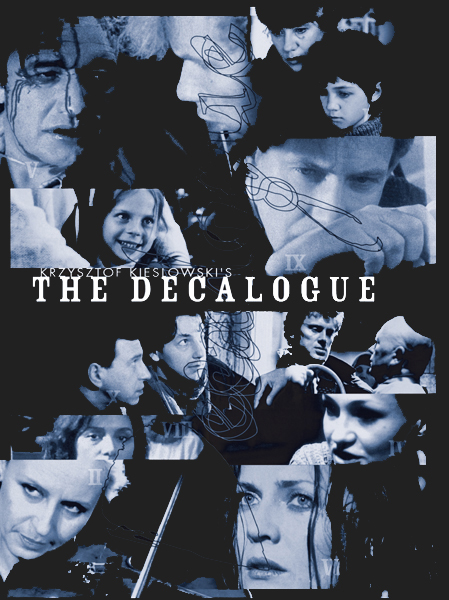
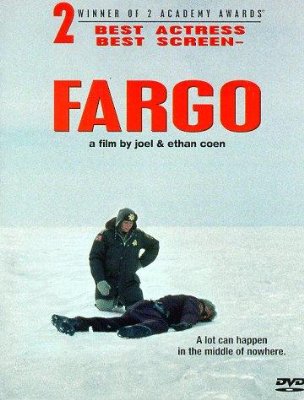
The Decalogue
Directed by Krzysztof Kieslowski
Written by Kieslowski and Krzysztof Piesiewicz
With Henryk Baranowski, Krystyna Janda, Aleksander Bardini, Daniel Olbrychski, Maria Pakulnis, Adrianna Biedrzynska, Janusz Gajos, Miroslaw Baka, Krzysztof Globisz, Jan Tesarz, Grazyna Szapolowska, Olaf Lubaszenko, Anna Polony, Maria Koscialkowska, Teresa Marczewska, Ewa Blaszczyk, Piotr Machalica, Jerzy Stuhr, and Zbigniew Zamachowski.
Fargo
Directed by Joel Coen
Written by Ethan Coen and Joel Coen
With Frances McDormand, William H. Macy, Steve Buscemi, Peter Stormare, Kristin Rudrud, Harve Presnell, Steven Reevis, John Carroll Lynch, and Steve Park.

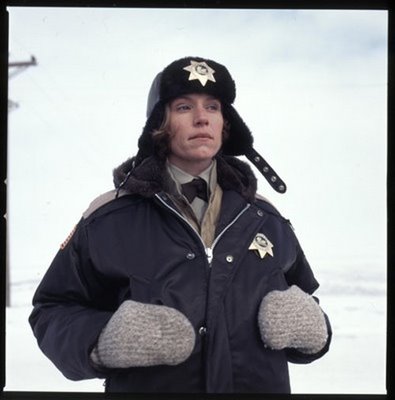
One way of judging the importance of filmmakers is by looking at the kind of talk they generate among their audiences. Since the recent death of the 54-year-old Krzysztof Kieslowski during open-heart surgery, one of the key points of speculation about him is whether he knew when he announced his retirement a couple of years ago that he had a heart condition. As evidence that he did, one could cite the fact that the “twin” Polish and French heroines of his The Double Life of Veronique (1991) suffer from heart conditions, and one ultimately dies from hers; as evidence that he didn’t, one could note that Kieslowski was a heavy smoker and continued to smoke after his announcement (though he may have been simply reckless). Read more
These are expanded Chicago Reader capsules written for a 2003 collection edited by Steven Jay Schneider. I contributed 72 of these in all; here are the second dozen, in alphabetical order. — J.R.
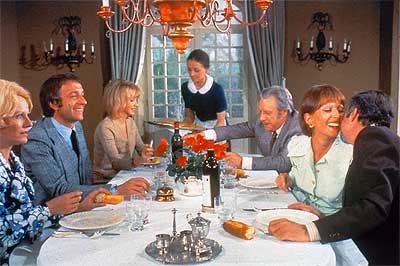
The Discreet Charm of the Bourgeoisie
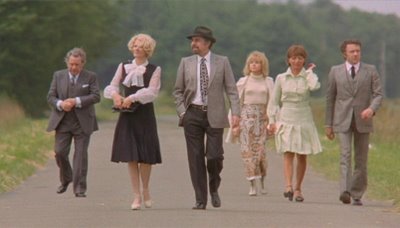
Luis Buñuel’s 1972 comic masterpiece, about three well-to-do couples who try and fail to sit down and have a meal together, is perhaps the most perfectly achieved and executed of all his late French films. The film proceeds by diverse interruptions, digressions, and interpolations (including dreams, dreams within dreams, and tales within tales) that, interestingly enough, identify the characters, their class, and their seeming indestructibility with the very processes of narrative illusion and narrative continuity themselves — their rewards as well as their compulsions, their pleasures and their frustrations.
Frightening, funny, profound, and mysterious, the various episodes involving these and other characters (including Jean-Pierre Cassel and Paul Frankeur) are like an anthology of Buñuel’s themes, favorite gags, and recurring nightmares. The film was produced by Serge Silberman and coscripted by Jean-Claude Carrière, perhaps the two most essential friends and collaborators in the flowering of Bunuel’s late period, though Buñuel regulars Rey, Frankeur, and Julien Bertheau might also be cited. Read more
From the Chicago Reader (November 19, 2004). — J.R.
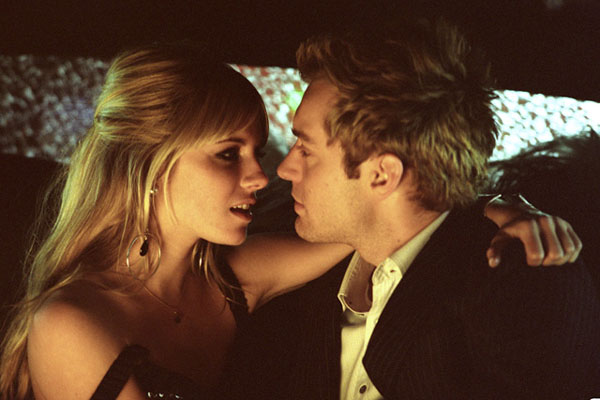
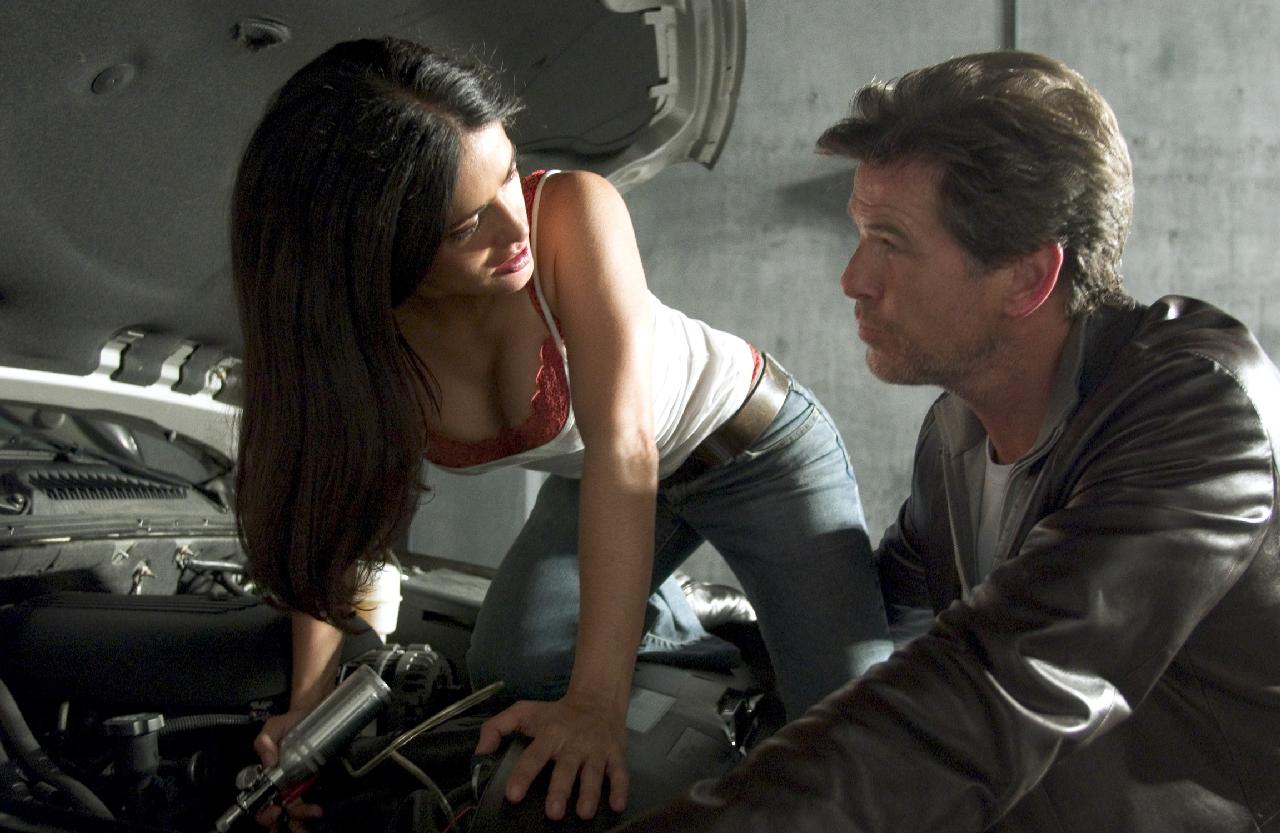
Alfie
* (Has redeeming facet)
Directed by Charles Shyer
Written by Elaine Pope and Shyer
With Jude Law, Marisa Tomei, Omar Epps, Nia Long, Jane Krakowski, Sienna Miller, and Susan Sarandon
After the Sunset
** (Worth seeing)
Directed by Brett Ratner
Written by Paul Zbyszewski and Craig Rosenberg
With Pirece Prosnan, Salma Hayek, Woody HArrelson, Naomie Harris, and Don Cheadle
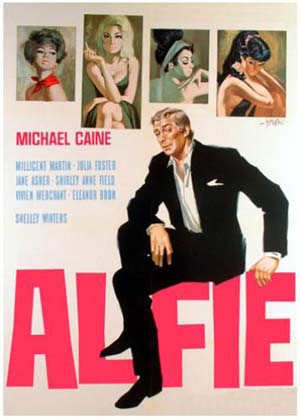

The terrible thing about most remakes is that they downgrade borrowed experience. I’ve never been a big fan of the 1966 Alfie, a precise, bittersweet portrait of a misogynistic cockney lady-killer in a sordidly downscale London. But it’s unequivocally a reflection of things that have been lived, above all by Bill Naughton (adapting his own play) and Michael Caine (whose cockney background helped make the title role indelibly his own). The special kind of music these two make together, under Lewis Gilbert’s efficient direction, matches the brashness of Sonny Rollins’s score and tenor sax solos.
So what would motivate a remake? Director and cowriter Charles Shyer seems to think he’s come up with contemporary counterparts. He also seems to think the class consciousness, cockney accents, English settings, fleshed-out characters, social milieu, and period of the original are all expendable — raising the question of what Alfie is without them. Read more










